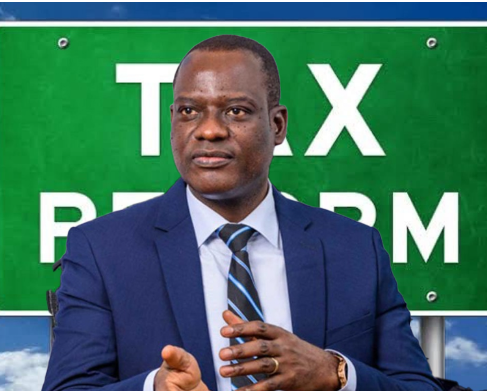|
Listen now
Getting your Trinity Audio player ready...
|
Without the current reforms of the President Bola Tinubu administration, the government would have printed N70trn of currency through Ways and Means, which would have been cataclysmic to the economy.
This was made known by Taiwo Oyedele, chairman of the Presidential Committee on Fiscal Policy and Tax Reforms in Nigeria, at an Interactive Session with Journalists and Public Analysts, held in Lagos today.
During the session, Oyedele reiterated the importance of magnifying tax revenue to fund infrastructure and spur economic growth.
He added that under Tinubu’s administration, Nigeria no longer prints Naira to spend even as the country is reeling from the monies that had been previously printed.
“Without the current reforms, we would not have been able to buy fuel. Dangote Refinery would not have come on board,” said Oyedele.
“Without the reforms, the trade deficit would have expanded. The tax to GDP would have crashed, and the government would have printed between N60 trillion and N70 trillion,” said Oyedele.
The N30 trillion printed by the central bank between 2015-2023 under the former president Muhammadu Buhari stoked hyperinflation that aggravated the poverty rate.
“We talked about inflation, and we have helped to solve that. Where has it come from?” said Minister of Finance and Coordinating Minister of Economy, Wale Edun.
“It came from eight years of just printing money not matched by productivity. It’s not like when you earn dollars, and you free the naira alongside it, although there’s even a better way than that. But that’s still not as bad,” said Edun.
The reforms announced by President Bola Ahmed Tinubu during his swearing in on May 29, 2023 such as the removal of subsidy in fuel and liberalisation of the foreign exchange market are yielding fruit as there is relative economic stability attracting foreign investors who had fled.
According to the National Bureau of Statistics (NBS), in Q2-25, the Nigerian economy grew by 4.23% yoy in real terms in Q2, 2025. This marks an improvement from the 3.48% yoy growth recorded in Q2-24, and the 3.13% yoy growth observed in Q1-25.
Nigeria’s year-on-year inflation rate for August 2025 was 20.12%, as released by the National Bureau of Statistics (NBS) on September 15, 2025. This figure represents a decrease from July’s 21.88% and is the fifth consecutive month the inflation rate has eased.
The Monetary Policy Committee of the Central Bank of Nigeria has reduced the country’s benchmark interest rate to 27.00 per cent, the first cut in 2025 after three consecutive pauses.




 Follow the MoneyCentral Nigeria channel on WhatsApp: Click here!
Follow the MoneyCentral Nigeria channel on WhatsApp: Click here!